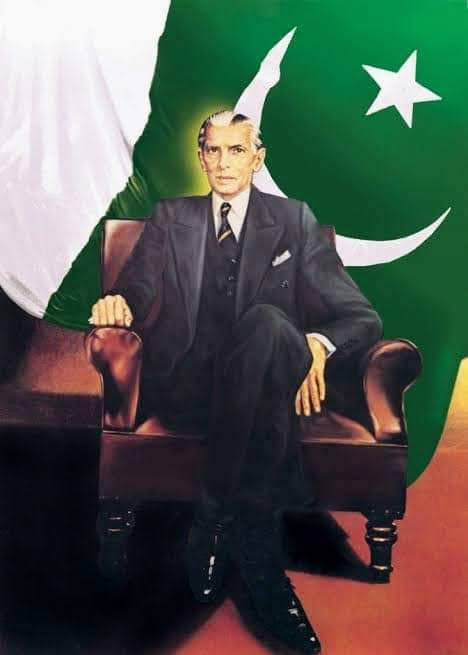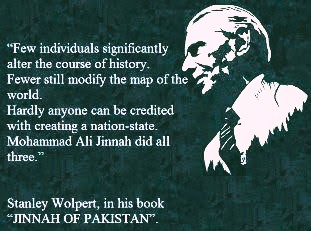Quaid-e-Azam Muhammad Ali Jinnah: The Secret He Carried While Carrying a Nation
History books tell us what Quaid-e-Azam achieved.
They rarely pause to tell us what he was silently fighting while doing it.
While negotiating with the British Empire, confronting the Congress leadership, and steering the Muslim League toward Pakistan, Muhammad Ali Jinnah was dying.
And almost no one knew.

What Disease Did Quaid-e-Azam Have?
Quaid-e-Azam suffered from advanced tuberculosis, later complicated by lung cancer. In the 1940s, TB was not just an illness. It was a social and political weakness. A leader known to have it would instantly lose credibility in negotiations about the future of millions.
Jinnah understood this better than anyone.
If his rivals discovered the truth, they would simply wait him out.
So he made a decision that changed history:
His illness would not become public until Pakistan existed.
How Did He Keep It a Secret?
Keeping a terminal illness hidden while leading a political movement sounds impossible. Jinnah made it possible through discipline, planning, and iron control over his private life.
A Tiny Circle of Trust
Only one or two doctors knew the full truth. Most famously, Dr Ilahi Bakhsh, who treated him under strict secrecy.
No medical files were shared.
No official statements were made.
Even close colleagues were kept in the dark.
This was not secrecy for pride. It was a strategy.
Controlled Public Appearances
Jinnah managed his energy like a rare resource.
- Short meetings
- A few public speeches
- Carefully scheduled travel
- Immediate rest after engagements
People assumed he was simply reserved or tired. They did not realise each appearance cost him physically.
When he coughed blood, he concealed it.
When pain struck, he postponed rest.
Not because he ignored illness, but because he had a deadline: freedom before collapse.
His Image as Armour
Jinnah’s public persona worked in his favour.
He was known as:
- Emotionally distant
- Physically reserved
- Extremely formal
So the weakness went unnoticed.
His sharp suits, upright posture, and controlled speech created an illusion of strength that fooled even seasoned political observers.
In politics, perception is power. Jinnah mastered it.
Why His Rivals Never Found Out
British officials later admitted something remarkable:
Had they known Jinnah was terminally ill, Pakistan might never have happened.
They would have delayed talks.
Postponed decisions.
Waited for leadership to weaken.
Jinnah understood time better than anyone in the room.
He once said, in essence, that history does not wait for the healthy.
So he raced against his own body.
After Pakistan: When the Secret Could No Longer Be Kept
Once Pakistan was created in August 1947, the mission was complete. Only then did the illness become visible.
His health declined rapidly.
Even then, he continued working, signing documents, guiding policy, and urging unity, faith, and discipline. He passed away on 11 September 1948, barely a year after Pakistan’s birth.
He did not live to see the nation grow.
But he lived long enough to ensure it was born.
What This Reveals About His Character
This was not recklessness.
This was a sacrifice with calculation.
- He did not seek sympathy
- He did not ask for extensions
- He did not allow personal suffering to delay collective freedom
He treated his own life like a resource to be spent carefully for a larger purpose.
That is rare leadership.
Why This Story Still Matters

Today, leaders often pause missions for comfort.
Jinnah postponed comfort for a mission.
He proved something timeless:
Great causes are not achieved by perfect health, perfect timing, or perfect conditions.
They are achieved by people who refuse to quit quietly.
A Final Reflection
Quaid-e-Azam Muhammad Ali Jinnah did not just fight colonial politics.
He fought his own failing lungs, day after day, in silence.
He won both battles long enough.
And that is why leaders like him do not merely belong in history books.
They belong to the conscience of nations.
If this story stirred something in you, pass it on.
Because courage deserves witnesses.
https://mrpo.pk/independence-day-pakistans-journey/
The Man Who Turned an Idea Into a Country
Imagine being so good at law, politics, and persuasion that you don’t just win a case, you help redraw a map. That’s the story of Quaid-e-Azam Muhammad Ali Jinnah, the founder of Pakistan, a man whose life reads like a dramatic novel but whose decisions shaped the destiny of millions. (Encyclopedia Britannica)
Mohammed Ali Jinnah (born December 25, 1876, Karachi, India [now in Pakistan], died September 11, 1948, Karachi) was an Indian Muslim politician who was the founder and first governor-general (1947–48) of Pakistan.

From Barrister to Politician: Learning to Lead
Young Jinnah didn’t start out wanting to found a nation. He went to England to study law and returned a razor-sharp barrister, respected for arguing complex cases with calm precision. (Encyclopedia Britannica)
He soon stepped into politics, first joining the Indian National Congress, where he championed Hindu-Muslim unity — an early hint that he was looking for big answers to tough problems. (Pakistan Information Department)
But politics in early 20th-century India was like a puzzle missing pieces. Despite his efforts, it became clear to Jinnah that Muslim interests were often sidelined — and that’s when his vision began to shift. (Pakistan Information Department)

The Two-Nation Idea and the Road to Pakistan
Some stories make it sound like Jinnah invented Pakistan on a whim. The truth is deeper: the idea of a separate homeland for Muslims was debated long before 1947, but Jinnah turned it from a notion into a political reality. (Encyclopedia Britannica)
By the 1930s and ’40s, he strongly believed that Muslims of the Indian subcontinent needed a space where their rights, culture, and future wouldn’t be drowned out. This push culminated in the Lahore Resolution, the political rallying point for Pakistan. (Encyclopedia Britannica)
When Pakistan Was Born
On August 14, 1947, the world changed. Fourteen years after Jinnah’s focused shift from unity to nationhood, Pakistan emerged as a sovereign state. He became the first Governor-General, not just a title but a symbol of a dream realised. (Encyclopedia Britannica)
Think of it like a marathon runner who carried the baton across the finish line — except this race was political, social, and deeply emotional.
Beyond Politics: The Human Side
Jinnah was known for his discipline, personal austerity, and legal brilliance. He lived modestly and expected honesty from himself and others. Even as his health declined, he stayed committed to solving Pakistan’s early challenges. (Encyclopedia Britannica)
When he gave his famous speech to Pakistan’s Constituent Assembly in August 1947, he didn’t speak as a conqueror but as someone asking his people to cherish justice, protect minorities, and build a fair society. (president.gov.pk)
Legacy That Still Matters
So what’s the real takeaway from Jinnah’s life?
- Leadership isn’t about ego; it’s about vision and resolve.
- Unity, faith, and discipline were more than slogans; they were practical tools he believed could hold a nation together.
- And above all, he showed that one determined individual can change history. (president.gov.pk)
Whether you’re reading history or writing your own story, Jinnah’s life reminds us: big dreams need even bigger courage.
Frequently Asked (But Interesting) Questions
Was Jinnah a lawyer before he was a politician?
Yes. His work as a barrister shaped his sharp thinking and negotiation skills. (Encyclopedia Britannica)
Did people always support the idea of Pakistan?
No. Many opposed it, including leaders in the Indian National Congress, until politics left little choice. (Encyclopedia Britannica)
Did Jinnah’s ideas change over time?
Definitely; early in his career, he pushed for unity, and later he argued that Muslims needed their own state to thrive. (Pakistan Information Department)
Final Thought: History doesn’t just remember names it remembers the choices that shaped futures. Quaid-e-Azam Muhammad Ali Jinnah didn’t just choose a country; he challenged assumptions about identity, belonging, and leadership. 🇵🇰


